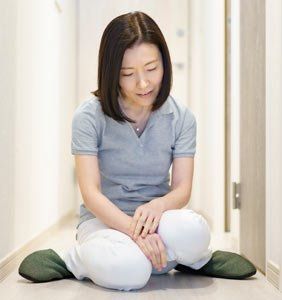The Stages of Menopause
Menopause is the biological stage of life where menstrual cycles stop, and fertility ends. The ovaries trigger menopause as they cease producing estrogen and progesterone. Most women experience menopause in their 40s or 50s. For some, it comes earlier or later. Early menopause typically occurs when someone has their ovaries surgically removed or due to disease or illness.
The treatment for menopause is unique in medicine because it is not meant to stop the process. Menopause treatments exist to help women stay more comfortable as they transition into a new stage of their life. The effects of the change can be mild or severe, but every woman will notice the reduction of hormones in their body.
Menopause is a long, slow transition that happens over many years. Dr. Dana Cohen can assist women throughout the process or during any stage as needed. There are three main stages of the menopausal process - and all can have differences for the individual as they move through them.
Perimenopause
The start of the process is known as perimenopause. Menstrual cycles begin to change. Some women will have shorter and lighter periods, and some will experience heavier bleeding. The frequency of the periods could become impossible to predict. Other noticeable changes could include sleep disturbances, hot flashes, and more noticeable PMS symptoms.
Women remain fertile during this stage of menopause and can become pregnant despite irregular periods. Most women will begin this transition in their late 40s or early 50s. The average age of a woman entering perimenopause is 47.
Menopause
The official beginning of menopause is when a woman has gone one year without a menstrual cycle. It is common to believe menopause has begun after several missed cycles only to have them arrive consistently again for several months or longer. After one year of no periods, the menopause stage means a woman can no longer conceive. She can, however, still carry a child through implantation with a donor egg.
The symptoms experienced during the menopause stage will increase for most women. Many people will begin searching for Natural Remedies for Menopause to help alleviate the discomforts that can arise. Common issues include hot flashes, sleep disturbances, brain fog, weight gain, and vaginal dryness. Women may begin to feel a drop in their sex drive. Night sweats and an increase in the risk of osteoporosis may also start at this stage. Women typically experience menopause around the age of 51.
Postmenopause
Menopause and postmenopause are stages reached at nearly the same time. Postmenopause is the point where a woman has gone more than 12 months without a menstrual cycle. Women may suspect they are entering menopause but will usually only know for sure once they reach the postmenopausal stage. The postmenopausal stage is the final stage of the cycle, and it is permanent.
Women often experience many of the symptoms of menopause into their postmenopause stage. The severity of the problems will usually decline but, random hot flashes can continue for years. The drop in estrogen can cause some new concerns for women. The decline can cause a thinning of the vaginal skin and lead to painful intercourse and urinary incontinence. Treatment is available for these issues.
Sign-up today and receive ta FREE Dry Brushing Guide written by Dr. Dana Cohen

Common Symptoms of Menopause
- Absence of menstrual period
- Hot flashes and night sweats
- Vaginal dryness
- Urinary incontinence
- Tiredness
- Stiff or painful joints
- Mood changes
- Depression
- Anxiety
- Irritability
Common Causes of Health Problems from Menopause
Every woman will experience some changes and discomfort during their menopause transition. The severity of the effects can depend somewhat on the health and lifestyle choices of the individual. Unhealthy diets, lack of exercise, and inadequate sleep can cause the symptoms of menopause to worsen. Making all the right choices, however, is not always enough. Many healthy, active women still experience discomfort during their change and turn to medical providers to make the process more comfortable.
Contact Dr. Dana Cohen MD for Your Personalized Menopause Treatment
Dr. Cohen believes that the undesirable symptoms of menopause can be relieved through integrative treatments. Dr. Cohen gives her patients suffering from menopause a blood test that can determine the levels of hormones, neurotransmitters and blood sugars present in the body.
Once these levels are established, Dr. Cohen works with her patients to determine the best treatment plan, which may include lifestyle and dietary changes, and in some cases, Bioidentical Hormone Replacement Therapy.
Please
contact Dr. Dana Cohen today!











